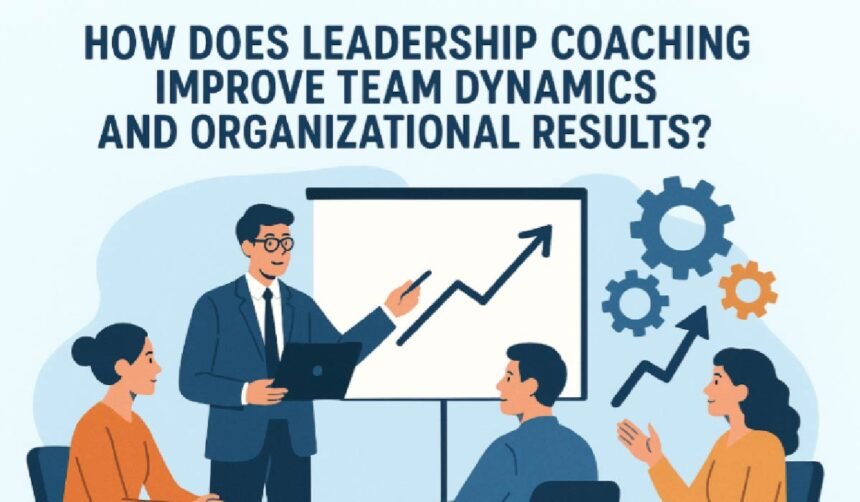Ever think about why some teams have extraordinary performances while other teams with the same talent underperform?
Often, the difference isn’t just the competencies but also the style of leadership.
Consider the potential of leading such a team where unity isn’t a problem, disagreements become opportunities, and everyone is willing to devote extra discretionary effort. This isn’t just leadership theory; it is attainable with the right investment in coaching.
More than the coaching itself, the difference it makes to the leaders and the teams pivots on the leaders’ understanding of the organizational context, the prioritization of the focus areas, and the realignment of interpersonal relations.
In this article, you’ll discover how leadership coaching can transform your team dynamics and elevate your organization’s performance. Keep reading to learn actionable strategies and insights that you can implement today.
-
Enhancing Communication and Collaboration

When you engage a leadership coach, one of the skills you will enhance first is collaboration and communication.
Misunderstandings, misaligned priorities, or a lack of feedback slow your team down. A leadership coach assists you in recognizing these weaknesses and creating a plan to ensure transparency and open communication.
You will be able to get better at solution-finding conversations rather than blaming conversations. By aligning your team’s goals with your organization’s objectives, you’ll create a shared vision that everyone can work toward.
As your communication improves, trust builds, and collaboration becomes effortless. Your team will start to share ideas, support one another, and engage more actively in achieving goals.
By including the guidance of a leadership coach, you can instill transparency, responsibility, and respect into the fabric of your organization’s culture, the direct dividend being enhanced group performance and collaboration.
-
Strengthening Decision-Making and Problem-Solving
A leadership coach helps you refine your problem-solving and decision-making capabilities, which in turn directly affect your team’s performance. You will be able to look back at past decisions, see patterns, and expose biases that may be affecting your choices.
This strengthens your critical thinking and enables you to scrutinize problems from several angles before acting upon them. With coaching, you also get access to systematic models that break up difficult issues so that you can create timely, useful options.
When your team executes these strategies, they’ll react with more confidence and clarity because they trust your decision-making. You’ll also guide your team through shared problem-solving, gently steering innovative and feasible solutions as a group.
By bringing decision-making into a high-leverage, conscious discipline, you will increase individual and team performance. Leadership coaching positions you to deal with challenges successfully, reducing errors and speeding up your business’s advancement.
-
Boosting Emotional Intelligence and Employee Engagement

Understanding and managing your emotions significantly influences your team’s engagement and cohesion. Coaches help develop your emotional intelligence by identifying your triggers, noting your reactions, and the effect you have on others.
Thoughtful responses instead of knee-jerk reactions create emotionally safe environments where team members feel understood and appreciated. The coaching you receive focuses on your active listening, trust-boosting feedback, and ways to recognize team members so they feel safe to commit.
Also, the more you engage emotionally, the more you tap the cooperative spirit. People work more effectively and creatively with you, especially when they feel validated and appreciated.
Leadership coaching equips you to improve personal relations and nurture a unified team that functions optimally. The emotionally safe environment you create with coaching energizes your team, ready to face challenges.
-
Driving Accountability and Performance
Understanding the concept of leadership coaching will enable you to develop responsibility and reinforce performance within your team.
A mentor will help you develop reasonable expectations, establish measurable goals, and ensure follow-ups are maintained. This will help the team comprehend the outcomes of each responsibility and understand the success measurement.
Furthermore, a mentor will also help you develop the performance of each team member in a way that focuses on the constructive aspects of each performance.
By being a role model, you will encourage team members to take responsibility for the tasks that they must accomplish and for the results. Coaching will also help in identifying and reinforcing results to maintain motivation and performance.
All in all, leadership coaching enables you to hold to your goals and make your team members understand the results to be accomplished.
-
Fostering Adaptability and Long-Term Growth

In today’s fast-changing business world, your ability to adapt defines your team’s success.
A leadership coach helps you navigate uncertainty, anticipate challenges, and stay focused amid change. You’ll learn to model resilience, encouraging your team to embrace new situations with confidence and creativity.
Coaching also supports your long-term growth by identifying skill gaps, developing talent, and building a culture of learning and innovation. As you foster adaptability, your team becomes more agile and prepared to handle market shifts or internal transformations.
With leadership coaching, you lead change effectively while maintaining stability, performance, and lasting organizational growth.









